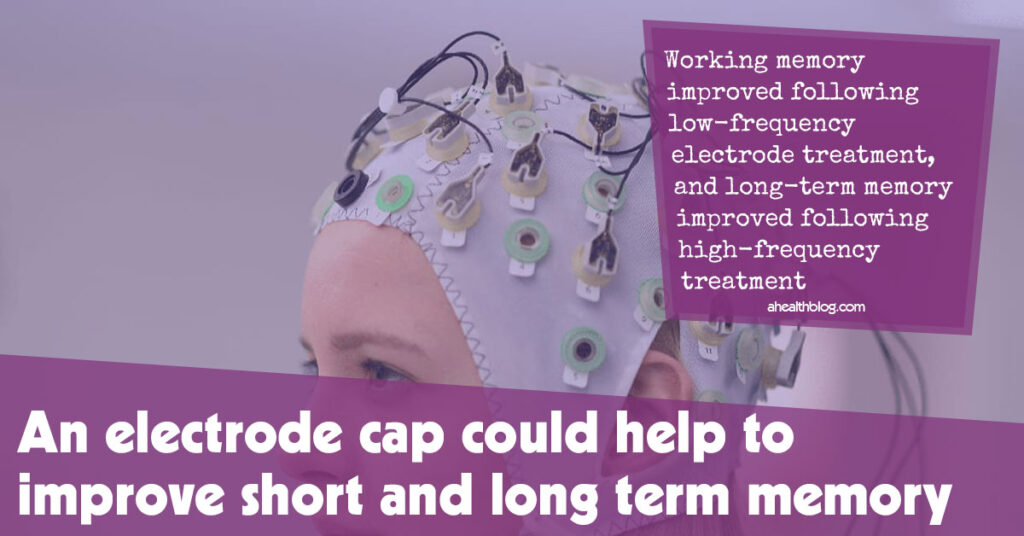Studies have demonstrated how memory function can be significantly enhanced for older individuals using noninvasive treatments that utilize electrodes embedded within a wearable cap and offer low and high frequencies to deliver treatment more effectively for memory loss.
This treatment for memory function was administered using scalp electrodes. Research showed that electrical stimulation of the brain for twenty minutes on four consecutive days can improve working and long-term memory in those over 65 by at least 30 days.
Working memory improved on day 3, 4 and 1 month following low-frequency electrode treatment, while long-term memory improved between days 2-4 and 1 month with high-frequency treatment. These findings demonstrate how selective use of these 2 treatments can alter an aging brain’s plasticity in ways not possible otherwise.
Researchers conducted 20-minute brain stimulations over several days for 30 days and saw improvements to long-term memory that persisted for that length of time, though their effects lasted only 50 minutes in an earlier study.
In this study, two methods of brain stimulation were developed; one low-frequency parietal stimulation method that selectively improved short-term memory; and another high-frequency prefrontal stimulation method that selectively improved long-term memory.
An increasing aging population brings with it additional social, personal, economic and healthcare costs. One factor contributing to these expenses is impairment of basic memory systems required for everyday tasks such as understanding language or making financial decisions.
Memory decline varies by person, with rapid decline a potential indicator of Alzheimer’s and other forms of dementia.
Current therapies for impaired cognition are limited by slow progress, mixed outcomes and potential side effects and risks. Therefore, more innovative treatments must be developed that can offer immediate and long-lasting improvement with few side effects or risks.
These study results are clinically relevant as there are people with both short-term memory problems and long-term memory difficulties who need support, making solutions available that address both memory challenges particularly valuable.

